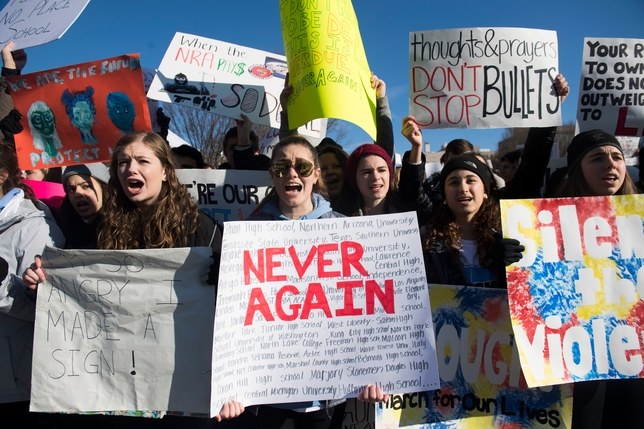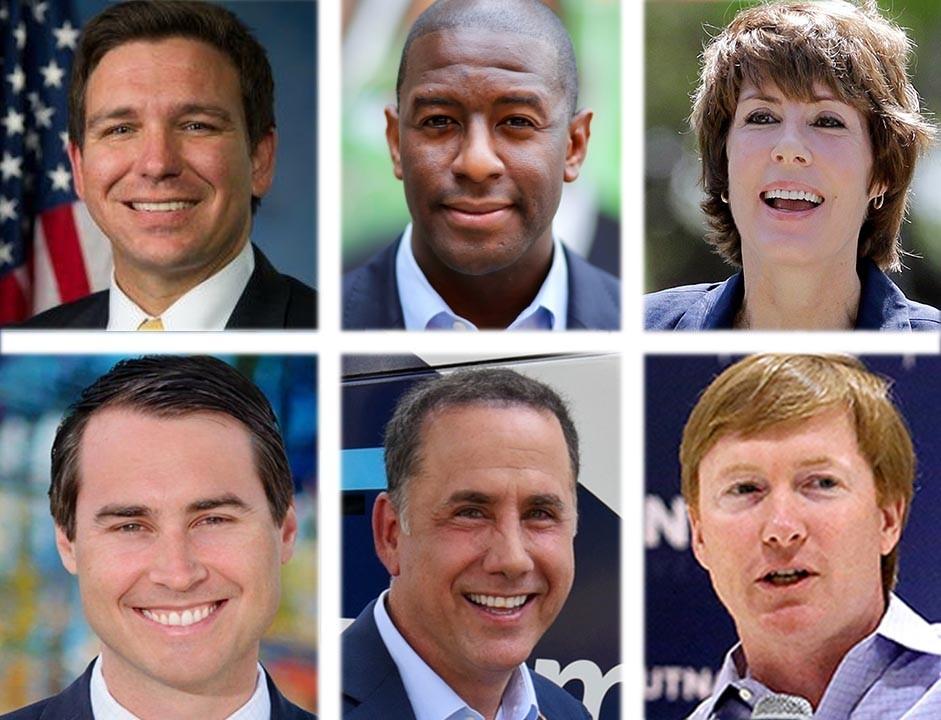By Jordan Jenkins
We are not even halfway through 2018, and yet the year has already proven itself to be one of unprecedented, large-scale political action by young people across the nation. Though much of this action has been concentrated on the issue of gun control — which returned to political prominence in the aftermath of the Valentine’s Day shooting at a high school in Parkland, Florida, where 17 students and teachers were killed — this wave of engagement can also be seen in relation to other issues of  political importance, such as environmental policy and social justice. Mass protests, school walkouts, and consumer boycotts have all been actions employed by this politically-active generation, but come this November, many will have the opportunity to take part in what is arguably the most important political action of them all: voting.
political importance, such as environmental policy and social justice. Mass protests, school walkouts, and consumer boycotts have all been actions employed by this politically-active generation, but come this November, many will have the opportunity to take part in what is arguably the most important political action of them all: voting.
Midterm elections have historically seen significantly lower voter turnout than the presidential election, but they hold great political importance. This is especially true this year. Nationally, partisan control of both chambers of the US Congress is up for grabs this year, and the results will have impacts that are felt for the remainder of President Donald Trump’s term and into the 2020 presidential election. As a state that has historically swung between the two major parties in terms of election vote, Florida will no doubt play a large role in deciding this outcome. We also have a myriad of important state-level elections and ballot initiatives that will greatly impact local policy. Considering that in previous midterm elections turnout amongst young people has been incredibly low, it is important that the youth have the knowledge and resources to turn their engagement into real governmental change.
For those who will be 18 by this Election Day (November 6), the first step is registering to vote. You must be a U.S. citizen, a resident of the state of Florida, and not otherwise declared unable to vote. In Florida, registration must be done at least 29 days prior to the date of the election in which you wish to participate. This process can be done by mail or in person, and typically requires some form of proof of identity. More specific details about the process and what is required can be found here.
For voters in Florida, there are two high-profile races this cycle that are likely to dominate statewide conversations until November. Firstly, current governor Rick Scott (R) is unable to run again due to term limits, so there will be an open election for the seat this November. This election is likely to decide which direction that state is going to take in relation to national policy for the following four years. Party primaries — in which the candidate who will receive the nomination of their party is decided via election — won’t be held until August 28, so there are currently a variety of Democratic and Republican candidates currently campaigning. For the Democratic Party, the leading candidates include the former U.S. Representative Gwen Graham, the Tallahassee Mayor Andrew Gillum, and self-described “radical centrist” former Miami Beach Mayor Phillip Levine. There is less range between the two leading Republican candidates, Florida Commissioner of Agriculture Adam Putnam and U.S. Representative Ron Desantis, other than the degree to which they openly associate with President Donald Trump. The other high-profile race is that for one of the two seats representing Florida in the U.S. Senate, which is currently held by Bill Nelson (D) and is being challenged by current Republican governor Rick Scott. Nelson, who has held the seat since 2001, has been more of a centrist when it comes to policy when compared to others in his party. Rick Scott has been more of a hardline conservative in his rhetoric and actions as governor.
Though these races will likely receive the most attention, it is likely that the smaller races and measures will end up having a larger impact on both the national and state level. Of the chambers of Congress, the House of Representatives is the one at greatest risk of being lost by the Republican Party this year, as indicated by trends in special elections up to now. Such a switch in partisan control would have huge national implications on things like healthcare, immigration, and social services. These elections vary in candidates and dynamics depending on what congressional district you live in, which can be found here. Additionally, this November will also see a ballot initiative to restore voting rights to felons in Florida, excluding sex offenders and murderers, upon completion of their sentences. Florida is one of a few states that automatically disenfranchises felons permanently, lest they undergo a five-year process. This has the potential to radically change the political landscape in Florida.
Those who will not be the required age of 18 by November 6 of this year, while ineligible to vote in this election, will still have options to be prepared. In Florida, you are able to preregister to vote at the age of 16, which eliminates the need to undergo voter registration once you do turn 18 and can actually vote. There are also many ways to be meaningfully involved in political discussions prior to actually being able to vote. Being informed an informed and engaged member of the population, regardless of whether or not you can vote, is one of the most important steps in inspiring real political change.

